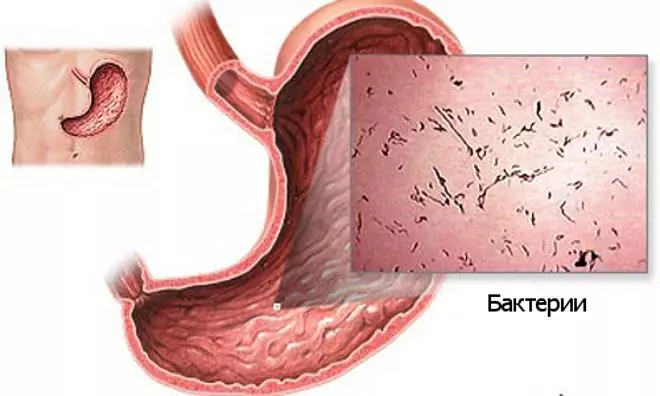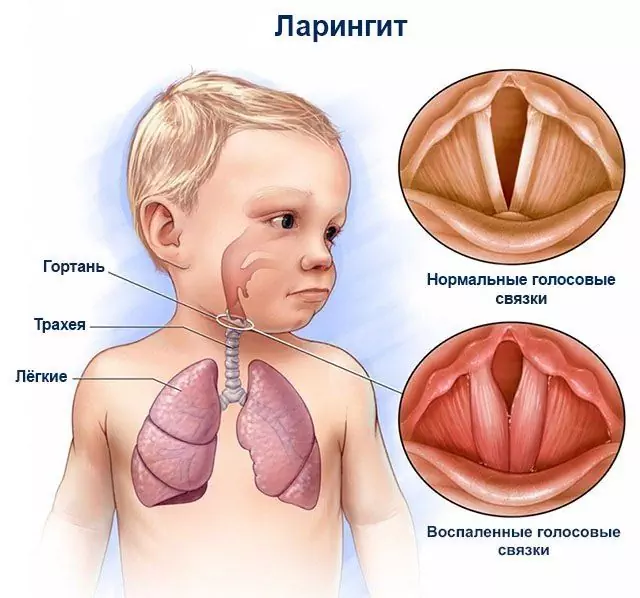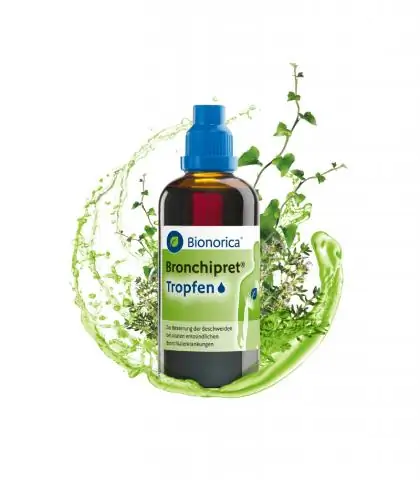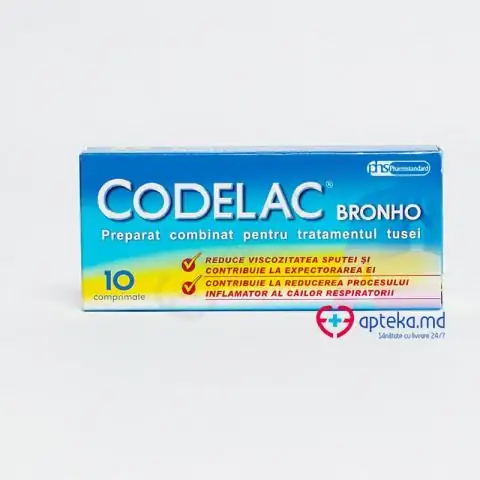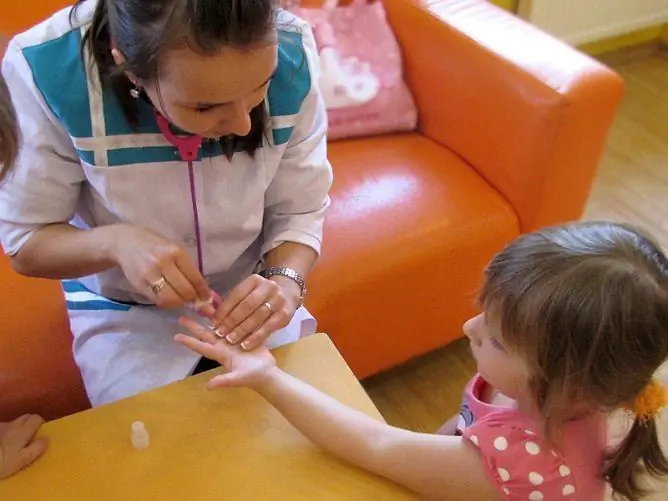- Author Rachel Wainwright wainwright@abchealthonline.com.
- Public 2023-12-15 07:39.
- Last modified 2025-11-02 20:14.
Tizine
Tizine: instructions for use and reviews
- 1. Release form and composition
- 2. Pharmacological properties
- 3. Indications for use
- 4. Contraindications
- 5. Method of application and dosage
- 6. Side effects
- 7. Overdose
- 8. Special instructions
- 9. Application during pregnancy and lactation
- 10. Use in childhood
- 11. Drug interactions
- 12. Analogs
- 13. Terms and conditions of storage
- 14. Terms of dispensing from pharmacies
- 15. Reviews
- 16. Price in pharmacies
Latin name: Tyzine
ATX code: R01AA06
Active ingredient: tetrizoline (tetryzoline)
Manufacturer: Famar Orleans (France)
Description and photo update: 2019-19-08
Prices in pharmacies: from 82 rubles.
Buy

Tizin is an alpha-adrenergic agonist, a decongestant drug for topical use in otolaryngology with a vasoconstrictor, decongestant effect.
Release form and composition
Dosage forms:
- nasal drops 0.05%: opalescent colorless liquid with a transparent structure (10 ml in a glass dropper bottle of dark color, in a cardboard box 1 bottle);
- nasal drops 0.1%: opalescent colorless liquid with a transparent structure (10 ml each in a glass dropper bottle of dark color, in a cardboard box 1 bottle).
The active substance of Tizin is tetrizoline, in 1 ml its content is:
- drops 0.05%: 0.5 mg;
- drops 0.1%: 1 mg.
Auxiliary components of drops 0.05% and 0.1%: hypromellose, 70% sorbitol (non-crystallizing), sodium citrate, benzyl alcohol, benzalkonium chloride (17% solution), perfume oil (No. 25768), disodium edetate, Cremophor 40 (macrogol glyceryl hydroxystearate), concentrated hydrochloric acid (37%), purified water.
Pharmacological properties
Pharmacodynamics
Tetrizoline contributes to the narrowing of small arterioles localized in the nasal passages, which ensures the elimination of edema and hyperemia of the mucous membranes and a decrease in secretion. The drug restores the patency of the nasal passages and facilitates nasal breathing. The effect of the drug appears 1 minute after its application and lasts up to 8 hours.
Pharmacokinetics
When applied topically, tetrizoline is practically not absorbed, therefore its content in blood plasma is negligible.
Indications for use
According to the instructions, Tizin is indicated to reduce swelling of the nasal mucosa with sinusitis, rhinitis, pharyngitis, hay fever, and to carry out therapeutic or diagnostic measures.
Contraindications
- angle-closure glaucoma;
- dry rhinitis;
- hypersensitivity to the components of the drug.
Application in pediatrics: drops of 0.05% Tizine are contraindicated for children under 2 years of age, drops of 0.1% - for children under 6 years of age.
With extreme caution, after carefully comparing the benefits of therapy and the possible risk to the patient, Tizine should be prescribed for severe cardiovascular pathologies (including arterial hypertension, coronary heart disease, arrhythmia, pheochromocytoma, aneurysm), metabolic disorders (including diabetes mellitus, hyperthyroidism), concomitant use of monoamine oxidase inhibitors (MAO) and other drugs that increase blood pressure; during pregnancy and breastfeeding.
Instructions for the use of Tizin: method and dosage
Tizin drops are intended for instillation into the nasal passage, the procedure is carried out in each nostril.
The action of the drug lasts up to 8 hours, therefore, more than once every 4 hours, instillation should not be carried out.
Recommended dosage:
- drops 0.05%: children aged 2-6 years - 2-3 drops 3-4 times a day;
- drops 0.1%: patients over 6 years old - 2-4 drops 3-5 times a day.
Duration of treatment: children - no more than 3 days, adults - up to 5 days.
After a few days of interruption, the course of therapy can be repeated.
Side effects
- systemic disorders: weakness, headache, nausea, insomnia, sweating, tremors, increased blood pressure (BP), palpitations, allergic reactions;
- local disorders: burning sensation of the nasal mucosa, reactive hyperemia; against the background of prolonged use - chronic swelling of the nasal mucosa, dry rhinitis; frequent use in high doses - dry nasal mucosa, development of reactive edema, rhinitis medicamentosa.
Overdose
An overdose or accidental oral intake of Tizin drops can lead to symptoms such as depression of the respiratory center, dilated pupils, increased or decreased blood pressure, irregular heart rhythms, nausea, vomiting, headache, severe dizziness, fever, shortness of breath, increased sweating, cyanosis, convulsive seizures, collapse, coma. Also, in some cases, there are signs of CNS depression.
As therapeutic measures, gastric lavage, intake of activated carbon, artificial respiration, accompanied by the introduction of oxygen, are recommended. To lower blood pressure, phentolamine is slowly administered intravenously at a dose of 5 mg in saline, or it is taken in tablet form at a dose of 100 mg.
special instructions
Tizine should be used for a short time.
Nasal congestion throughout the night is relieved by a single application of the drops before going to bed. Because tetrizoline has an effect on the central nervous system (CNS), using it before bed can cause insomnia.
Ingestion of drops increases the risk of systemic side effects in young children.
Excessive systemic absorption of the drug can cause depression of the central nervous system, manifested by a decrease in body temperature, drowsiness, hypotension, bradycardia, apnea, coma.
Influence on the ability to drive vehicles and complex mechanisms
With long-term treatment with Tizin, or its use in doses higher than recommended, the risk of developing a systemic effect of tetrizoline cannot be excluded. In the case of diagnosing systemic side effects, it is necessary to avoid driving vehicles and performing other potentially hazardous work that require increased concentration and immediate psychomotor reactions.
Application during pregnancy and lactation
The use of Tizin in pregnant and lactating women is allowed only if the intended benefits of treatment significantly outweigh the potential risks to the fetus or child.
Pediatric use
Contraindications Tizin for children: 0.05% drops for children under 2 years old, 0.1% drops - for children under 6 years old.
Drug interactions
Tetrizoline potentiates the vasoconstrictor effect of MAO inhibitors and tricyclic antidepressants, therefore, with simultaneous use in a patient, an increase in blood pressure is possible.
Analogs
Tizin analogs are: Tizin Xylo BIO, Tizin Xylo, Tizin Alerji.
Terms and conditions of storage
Keep out of the reach of children.
Store at temperatures up to 25 ° C.
The shelf life is 5 years.
Terms of dispensing from pharmacies
Available without a prescription.
Reviews about Tizine
Patients who used this drug mainly leave favorable reviews about Tizine, and this applies to both dosage forms used in children and adults, respectively. Many parents emphasize the effectiveness of the drug in the treatment of children.
The price of Tizine in pharmacies
At the moment, the price of Tizine in the form of nasal drops remains unknown, since the drug is on sale exclusively in the form of a spray.
Tizine: prices in online pharmacies
|
Drug name Price Pharmacy |
|
Tizin Classic 0.1% nasal spray dosed 10 ml 1 pc. 82 RUB Buy |
|
Tizin Classic 0.05% nasal spray dosed 10 ml 1 pc. 84 rbl. Buy |
|
Tizin Classic nasal spray dosed 0.05% bottle 10 ml RUB 86 Buy |
|
Tizin Classic nasal spray for rhinitis dosed 0.1%, bottle 10 ml RUB 99 Buy |
|
Tizin Expert 0.05% nasal spray dosed 10 ml 1 pc. 110 RUB Buy |
|
Reviews Tizin Expert 110 RUB Buy |
|
Tizin Expert 0.1% nasal spray dosed 10 ml 1 pc. 155 RUB Buy |
|
Tizin Expert nasal spray dosed 0.05% bottle 10 ml 157 r Buy |
|
Tizin Expert nasal spray dosed 0.1% bottle 10 ml 163 r Buy |
|
Tizin Alerji 50 mcg / dose nasal spray dosed 10 ml 1 pc. 240 RUB Buy |
|
Reviews Tizin Alerji 240 RUB Buy |
|
Tizine Alerji, nasal spray, dosed, 50 mcg / dose, 10 ml bottle 293 r Buy |
| See all offers from pharmacies |

Anna Kozlova Medical journalist About the author
Education: Rostov State Medical University, specialty "General Medicine".
Information about the drug is generalized, provided for informational purposes only and does not replace the official instructions. Self-medication is hazardous to health!


